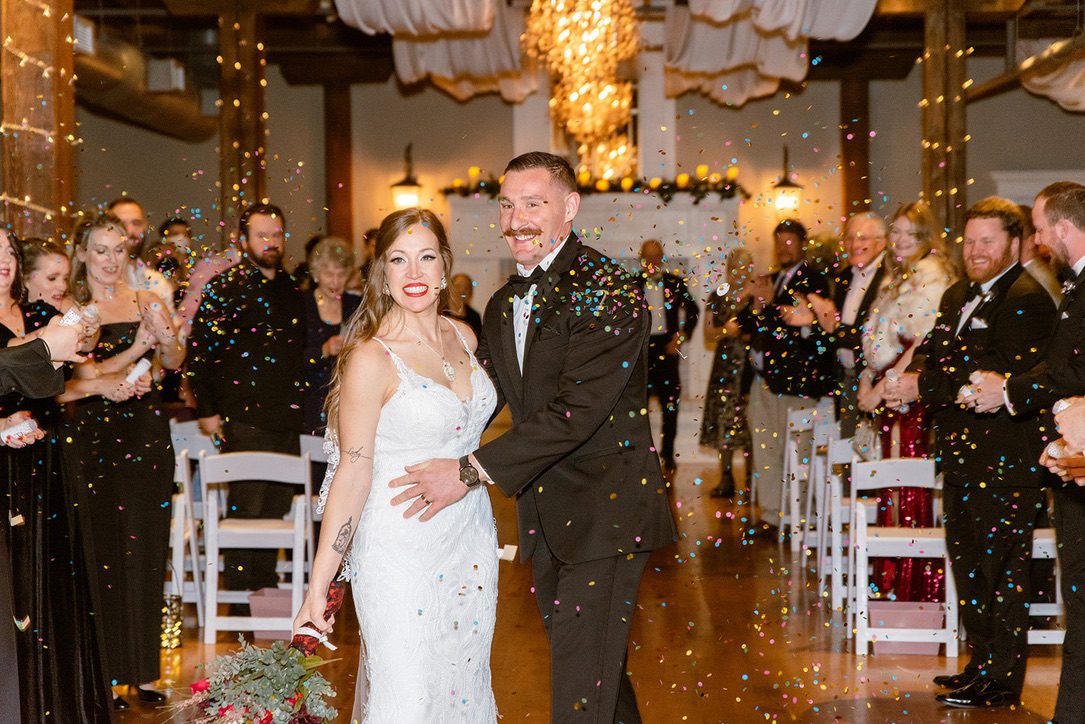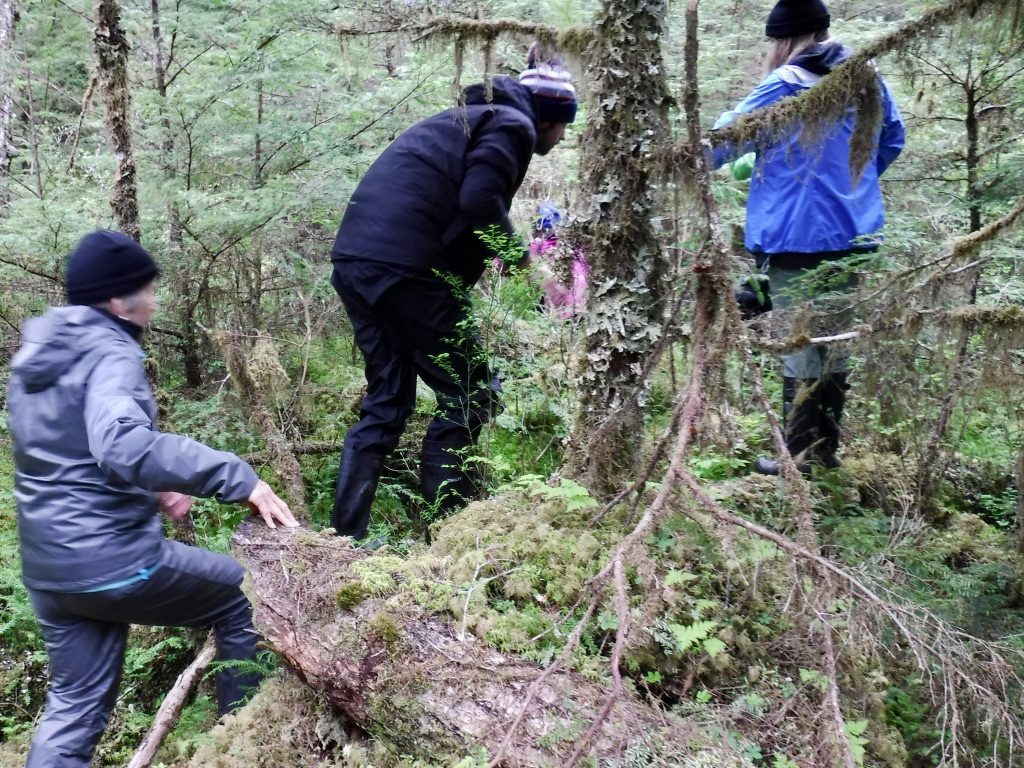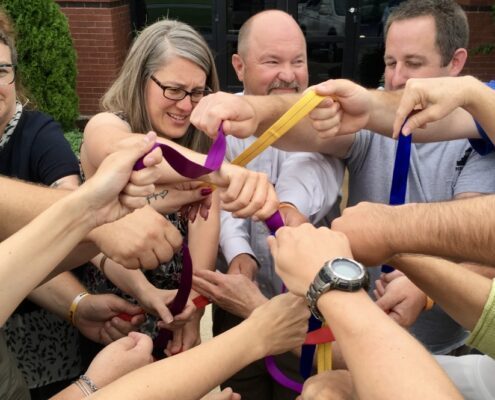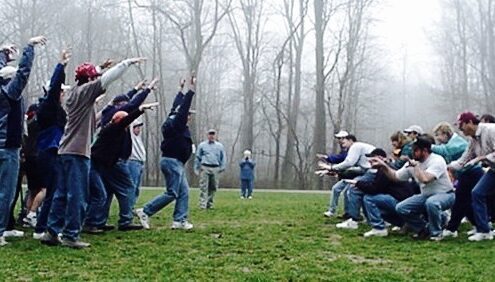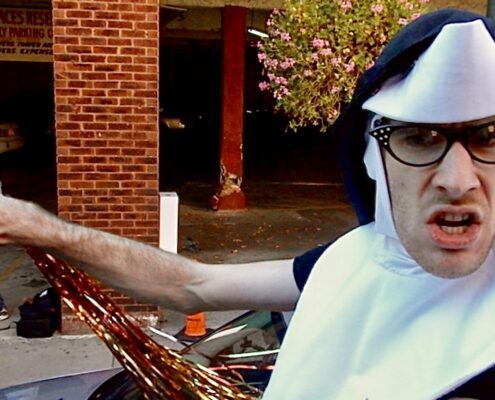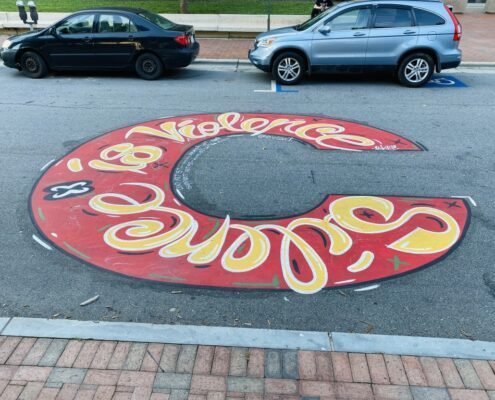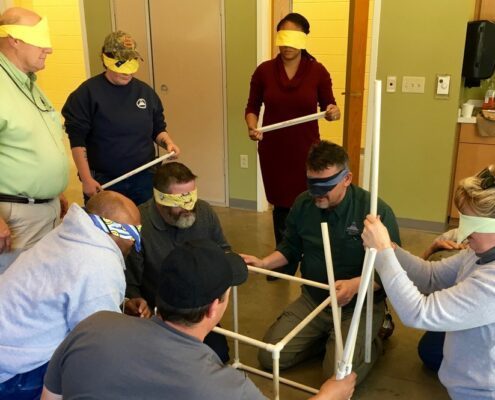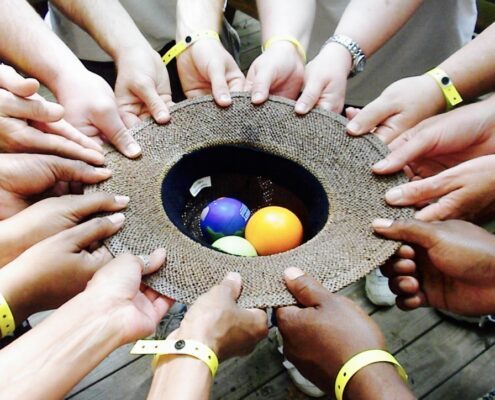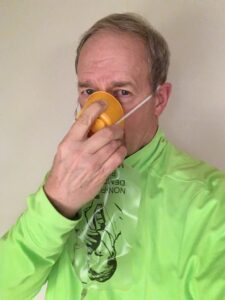I Now Pronounce You Husband and Wife!
I was asked by my son and future daughter-in-law to officiate their wedding. I went online and got “ordained” by The Universal Life Church Ministries. Several people in attendance as well as friends and family asked me to share the ceremony.
I began the ceremony with a welcome and acknowledgment of tribal and indigenous communities who originally lived and live on this land and on whose blood remains today. For Johnson City and Washington County, Tennessee, we recognized the Cherokee, Choctaw, and Muscogee “Creek” Nation citizens.
There was an opening prayer followed by scripture readings from Ecclesiastes 4: 9-11, Romans 12: 9-12, and an ee cummings poem [i carry your heart with me (i carry it in].
Here was my message to the bride and groom:
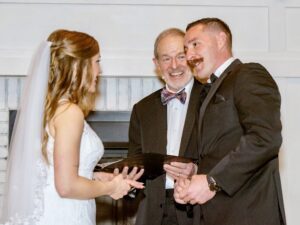
It’s an honor to stand before you two and officiate this ceremony!
We have come to this point in Brett and Abby’s lives who wish to share the magic of what they have experienced with each other and now with us.
For those of us in committed relationships, we also get to relive the magic we have with our significant other. I’d suggest this is an opportunity for us to hold hands with that person and experience the magic, the Holy Breath that is among us and in us. Brett and Abby’s magic becomes our magic.
It’s all lead up to this single moment of Brett and Abby looking at each other and saying, ‘I see you. I see you standing there. I know who you are. I totally get you. At this moment, I see all of you.’
This was captured in the 2004 movie Shall We Dance with Richard Gere, Jennifer Lopez, and Susan Sarandon.
Sarandon’s character, Beverly Clark, meets Richard Jenkin’s character, Devine. They talk about why they think people get married. Devine says it’s passion! Beverly Clark responds:
“We need a witness to our lives. There are a billion people on the planet… I mean, what does any one life really mean? But in a marriage, you’re promising to care about everything. The good things, the bad things, the unexpected things, the mundane things … all of it, all of the time, every day. You’re saying ‘Your life will not go unnoticed because I will notice it. Your life will not go un-witnessed because I will be your witness.'”
That is the gift that we struggle to receive every day. And because we’re all struggling to receive it, we forget to give it.
Someone said, we actually marry three times – the first time for love, the second time for security, and the third time for companionship. If we are lucky we marry the same person for all three!
Here is a piece of trivia for you … in the four gospels of the Bible, Jesus asks 339 questions. He was interested rather than interesting. A great marriage is about being interested rather than interesting. Ask more questions of one another. Many times, the question is more important than the answer and follow-up with another question.
There are six questions I’m going to suggest you all learn to ask each other regularly … as well as all of us in this space who are in a relationship with a significant other!
1st question …Wait! What? This question is at the root of all understanding. This is actually part of the Prayer of St. Francis – seek to understand before being understood. Seek a shared-mental model. Ask for clarification. This is also an invitation to slow down and hit your pause button.
2nd question … I wonder …? is the foundation for curiosity is as in “I wonder why Brett is so quiet?” Or “I wonder why Abby hasn’t smiled much lately?” Or “I wonder if we could take our relationship to a higher level?” And “I wonder if I could help?”
3rd question … Couldn’t we at least …? is the beginning of progress. It is the question to help you get out of the rut or hole you have fallen into. It can be the bridge to overcome disagreements.
4th question … If not now, when? We human beings procrastinate. We put things off and have a laundry list of excuses. “Honey, you said you were going to (fill in the blank!)” “When I get (fill in the blank), then I’ll (fill in the blank).”
First, don’t make promises you cannot keep. Second, great relationships are built upon reciprocity – yin, and yang, you scratch my back, I’ll scratch yours! Third, we live in an age of distraction. If not now, when? is a call for focus and action.
5th question … How can I help? is the heart of your relationship. Be aware of trying to “fix” each other. How can I help? may mean putting down your smartphone and just being beside each other at a time of pain or suffering.
There are two basic kinds of people – givers and grabbers. I’ve never met a grabber who has grabbed enough to be happy. On the other hand, it’s the “givers” who seem to be the happiest. Giving of your time can be the greatest gift we can give to another. How you help each other matters as much as what you give to each other. Remember when you ask, “How can I help?” begins with humility, recognizing you are not the expert.
6th question … What truly matters to me? This gets to the purpose of this relationship. You also need to ask,
What truly matters to you? I would hope that what truly matters to each of you is to be called “Beloved.” Beloved is dearly and deeply loved and cherished.
After their declaration of intent, vows, and ring exchange, there was this blessing:
Holy Creator:
May these vows, rings and this marriage be blessed.
May their trials keep them strong.
May their failures keep them humble.
May the sorrow they encounter keep them human.
May their faith carry them when they feel broken.
May they have hope to bring them joy daily.
May this marriage be full of laughter.
May their wealth meet their needs
May they always be significant to one another.
May they have enough determination to make tomorrow better than today.
And all God’s people said, “AMEN”
I gave a pronouncement, and then told Brett he may kiss Abby. After which, I got to introduce Mr. and Mrs. Carr to the gathering!
